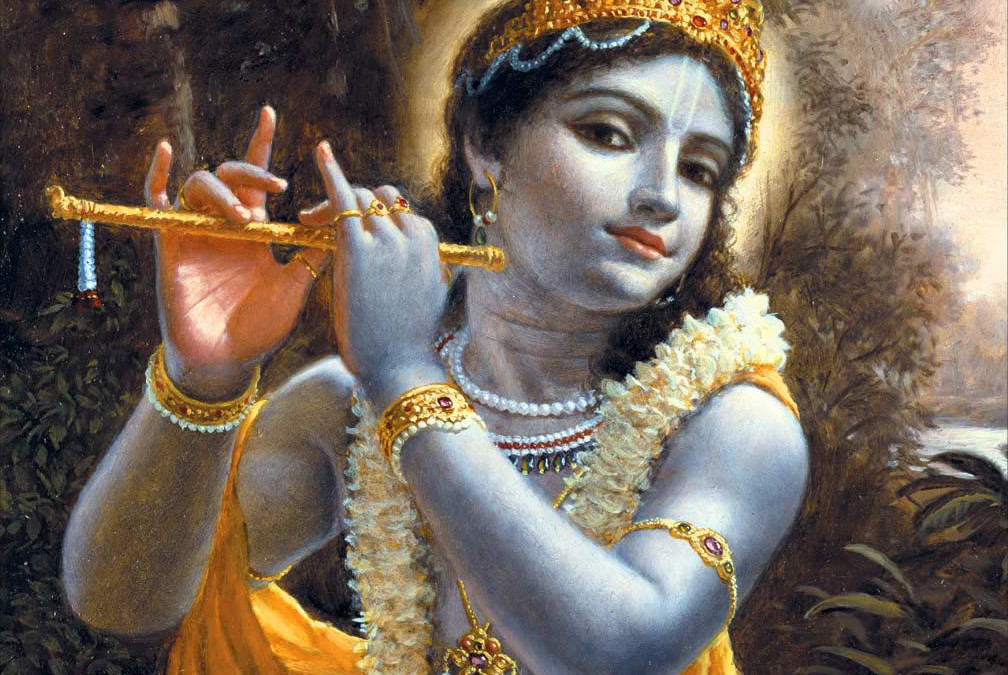Keys to Ananda, Supreme Happiness!
If you go looking for tranquility, you won’t find it. If your life embodies moral excellence, tranquility comes. If you seek tranquility, says Marcus Aurelius, do less. Santosh Yadav, the great Mountaineer, distinguishes between आवश्यक (essentials) and अनावश्यक (inessentials). Eliminate what is inessential, and live in the essential, she says. In other words, live as a minimalist.
Sages urge us to regard only that as truly ours which we can take with us in deep sleep. In deep sleep, we are not aware of our name, gender, position, bank balance, possessions or social status.
And yet, we enjoy a deep felicity in that state.
So much so that we eagerly look forward to sleep every day, day after day. By the way, sleep is the only thing we do for 7-8 hours daily and yet never get tired or bored by it!
In deep sleep, we are unaware of all external trappings and yet feel happy beyond measure.
That shows that happiness (ānanda) is our natural state, our svarupa.
Actually, deep sleep is a state of Sat-Chid-Ananda—Pure Existence-Consciousness-Bliss Supreme! How so?
Naturally, we exist in deep sleep and we are aware/conscious that we exist. That is Sat (Existence) and Chid (Awareness) part. And we are supremely happy and that is Ānanda (Supreme Felicity).
Please note, this ānanda is uncreated and uncaused. It is nitya–siddha avasthā (नित्य सिद्ध अवस्था)—an ever-attained state. It is not based on getting something or going somewhere or meeting someone. It is not based on any phenomenal experience. It is not the opposite of sorrow or pain, as most of our happiness or pleasure is.
It is Ānanda! It is bliss. It has no opposite. It is नैसर्गिक natural स्वाभाविक spontaneous. It is the joy of the fullness of our being, our Self—ātma–sukha. (See: BG 2.55)
How to remain in this blissful state of Ānanda, while fully awake?
That is the goal of all spirituality. And there cannot be a higher human goal.
सुखं मे सर्वदा भूयात् दुखं मा भूत् कदाचन ।
इति ईच्छा सर्व-सामान्या ज्ञानादेव तत् सिद्ध्यते ।।
sukhaṁ mē sarvadā bhūyāt dukhaṁ mā bhūt kadācana /
itīchā sarva-sāmānyā jñānādēva tat siddhyatē //
..May I always be happy, may I be never unhappy; this desire is common to all beings. This universal desire is fulfilled through (Self-) knowledge alone.
Only by knowing our true Self, which is ever-blissful, we are able to experience the everlasting, complete happiness—the bliss of the fullness of our being. God, perhaps in its infinite compassion, has arranged the human life in such a manner that we never get fully satisfied by any object, person, and experience until we find God—the only entity that is perfect and complete, in knowing which alone lies the final good and the supreme fulfillment of human destiny.
Most, lacking subtle discernment, take incompleteness to be all or the very best life has to offer. A few press on further, develop dispassion with the transient, the unreal, and keep inquiring and searching for the real until they finally discover it to be their very nature.
This is referred to as home-coming, becoming what we are truly.
We conclude with a verse from Bhaja Govindam:[1]
योगरतो वा भोगरतो वा सङ्गरतो वा सङ्गविहीनः ।
यस्य ब्रह्मणि रमते चित्तं नन्दति नन्दति नन्दत्येव ॥ १९॥[2]
yogaratovābhogaratovā sangaratovā sangaviihinah /
yasya brahmani ramate chittam nandati nandati nandatyeva //
One may take delight in yoga or bhōga, may have attachment or detachment. But only he whose mind steadily delights in the Self (Ātman-Brahman) enjoys bliss, no one else.
[1] There is a story attached to the composition of Bhaja Govindam Hymn. It is said that Adi Shankaracharya, accompanied by his disciples, was walking along a street in Varanasi one day when he came across an aged scholar reciting and memorising Panini’s grammar rules on the street. Taking pity on him, Adi Shankara went up to the scholar and advised him not to waste his precious time on grammar at his age but to turn his mind to God in worship and adoration, which would only save him from this vicious cycle of life and death. The hymn “Bhaja Govindam” is said to have been composed on this occasion. See: https://en.wikipedia.org/wiki/Bhaja_Govindam
The first verse goes like this:
भज गोविन्दं भज गोविन्दं गोविन्दं भज मूढमते ।
सम्प्राप्ते सन्निहिते काले नहि नहि रक्षति डुकृङ्करणे ॥ १॥
Worship Govinda, worship Govinda, worship Govinda, Oh fool!
Rules of grammar will not save you at the time of your death.
Swami Dayananda Sarasvati of Arsha Vidya Gurukulam once explained that the deeper meaning of the verse is not that reciting or memorizing grammar rules will not liberate us. Nothing that we can do will liberate us. Because liberation, mukti, is our natural state! We are nitya shudha buddha mukta svabhāva नित्य शुद्ध बुद्ध मुक्त स्वभाव—ever pure and free.
Same sentiment is expressed in the Japuji Sahib verse 5:
थापिया ना जाई कीता न होई, आपे आप निरंजन सोई !! जपुजी पौड़ी ५
He cannot be established (through reasoning, logic etc.),
He cannot be created (for that which is created, is subject to destruction).
He Himself is Immaculate and Pure.
[2] This particular verse is attributable to Anandagiri.


Recent Comments